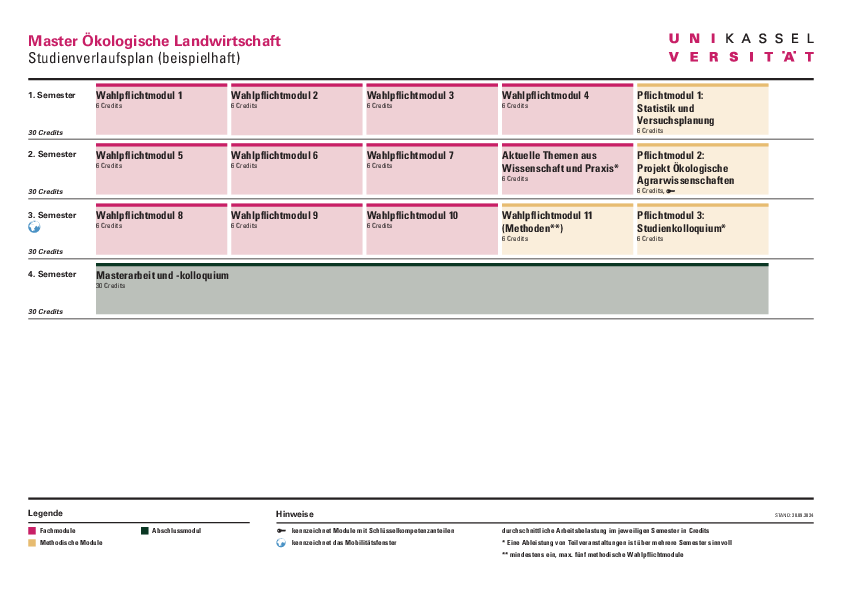Study structure
This page contains automatically translated content.
Study program
As part of the Master's degree program, students must complete module examinations in the following 3 modules, each worth 6 credits. These serve to prepare students methodically for the Master's thesis and to accompany it.
- Statistics and Experimental Design or alternatively Complex Methods of Social Research
- Ecological Agricultural Sciences Project
- Study colloquium
Students can set their own individual study profile.
As part of the Master's degree program, students must complete module examinations with a minimum of 36 and a maximum of 60 credits, i.e. 6-10 modules in the following areas:
- Soil and plant sciences
- Livestock sciences
- Economic, social and food sciences
- Free project
Students can set their own individual study profile. At least one module must be taken, a maximum of five modules can be taken. The modules come from different subject areas and can be found in the current module handbook.
In individual, often practice-oriented seminars, special aspects of organic farming and related disciplines as well as methods and languages are developed during the course of study, e.g. soil science exercises, wildlife education, poultry feeding or technical English.
Detailed information on the module "Current topics from science and practice"
The Master's thesis takes 22 weeks to complete. As a rule, an experimental and scientific examination of a topic of your choice takes place.
